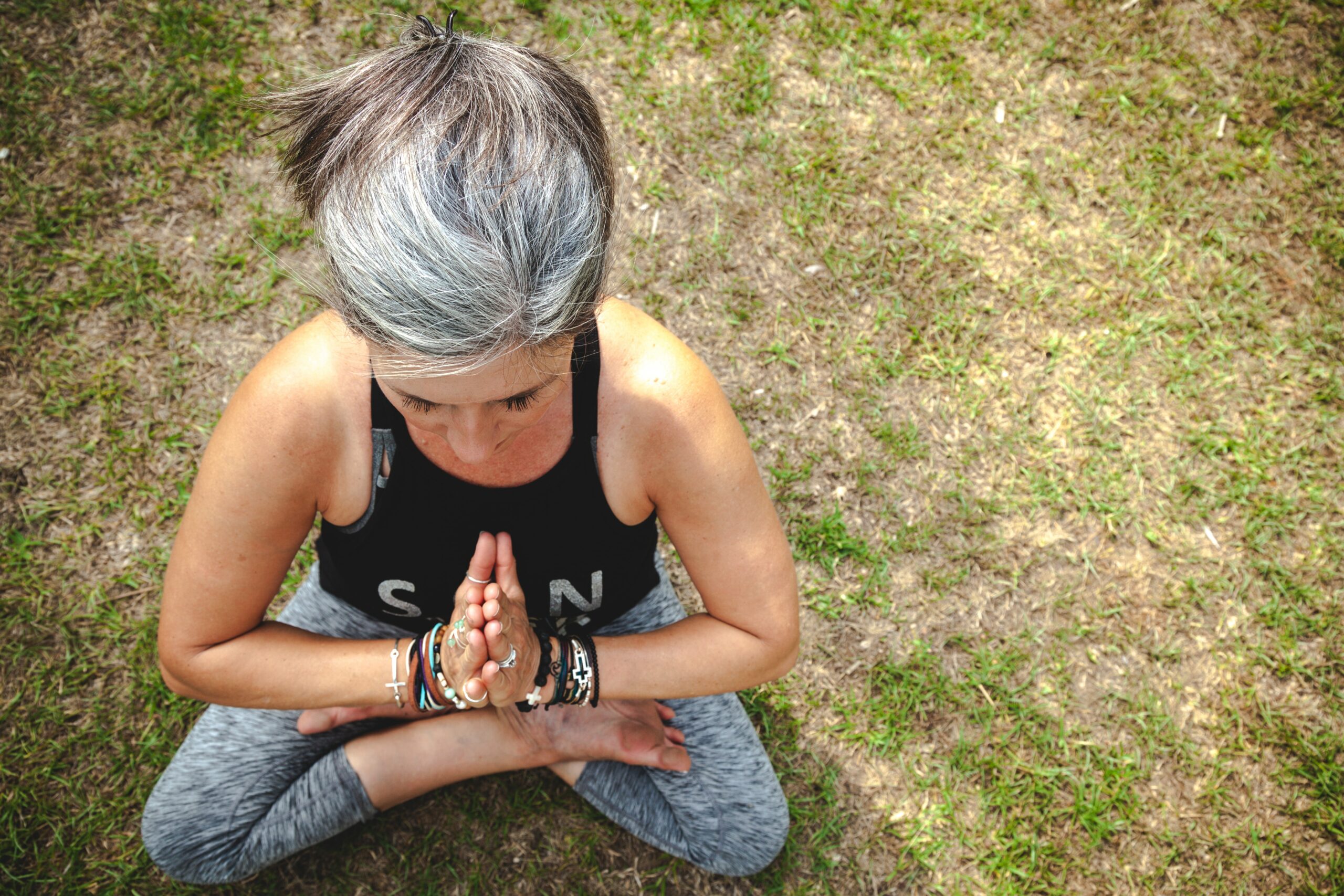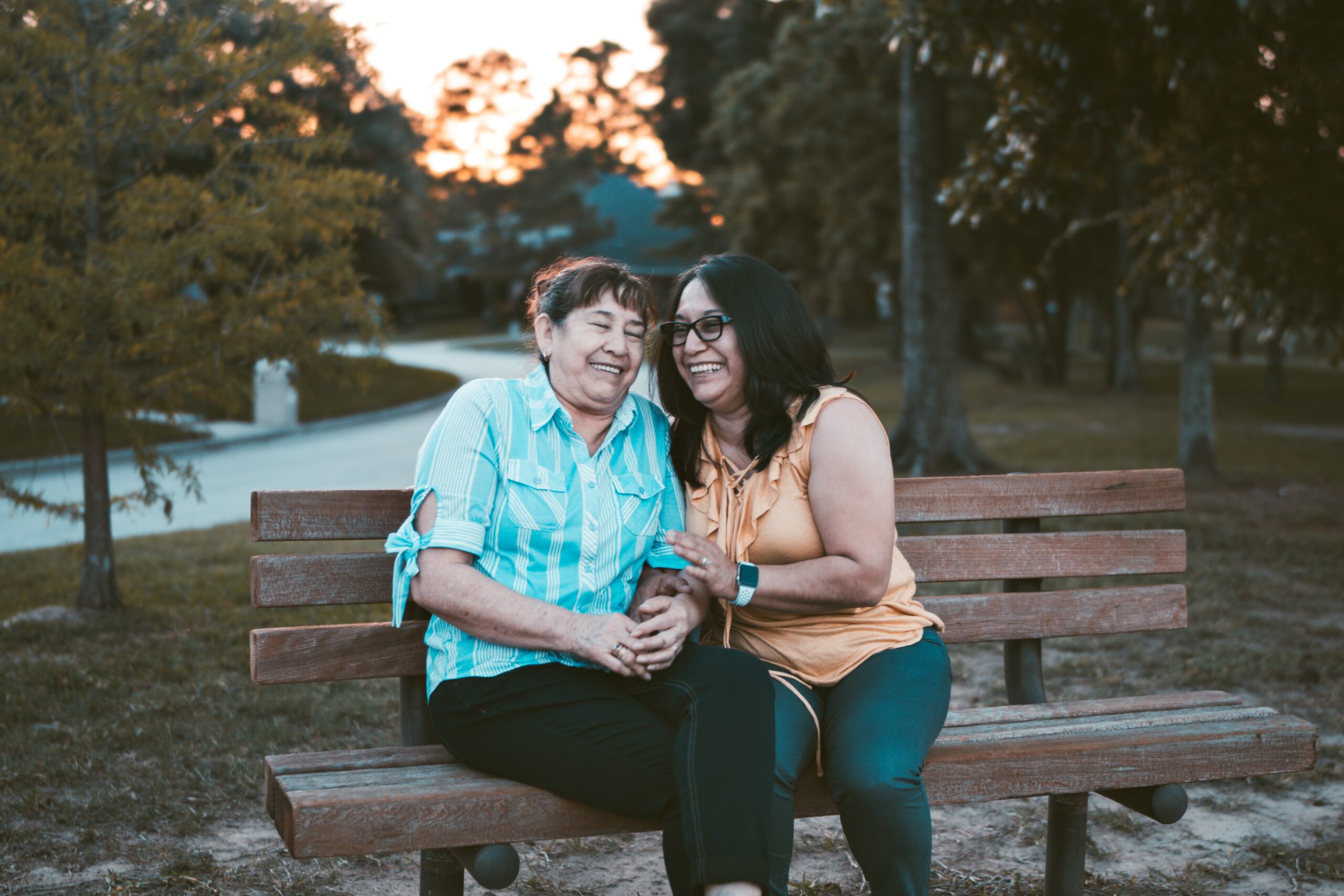This post may contain affiliate links. Full disclosure policy

Taking care of a beloved family member or friend can be a privilege. It can also be overwhelming. Engaging in a bit of self-care for caregivers can help you to maintain your own health and a positive outlook over the long haul.
Caregivers Need Care Too
If you’re a woman, chances are good that you’re going to take on the role of caregiver at some point during your life. Depending on the circumstances, caregiving can be very rewarding. Having the opportunity to care for my mother-in-law during the last years of her life was a privilege and strengthened the bond between us. I’m so grateful I was able to be there for her during that time.
However, caregiving can also be overwhelming and exhausting, both physically and emotionally. That’s why understanding the basics of self-care for caregivers is so important.
Remember the instructions that we’re given before pretty much every commercial airline flight? “In the event of an emergency, put on your own oxygen mask before assisting others.” That applies to self-care for caregivers too.
Because if you don’t take care of yourself, pretty soon you’re going to run out of the oxygen and energy you need to take care of your loved one. That’s no good for anybody, including you.
Self-Care for Caregivers: Why It Matters

Now, I know that some of you who read the paragraph above are already shaking your heads and thinking, “Yeah, I’ve heard the put your own mask on first analogy before, but Marie doesn’t get it. Caregiving keeps me so busy that I just don’t have time for self-care. Zip. Zero. Nada!”
My friend, I do get it. Believe me, I do.
But somehow or other, you’ve got to take the time or make the time for self-care. Here is why.
A 1999 study by JAMA (Journal of the American Medical Association), showed that people between the ages of 66 and 96 who caregiving for a spouse and experiencing mental or emotional strain have a risk of dying that is 63 percent higher than that of people the same age who aren’t caregivers.
And it’s not just older caregivers who are at risk for health problems. Children caring for an elderly parent while simultaneously trying to work and/or raise a family are more likely to experience depression or develop chronic health issues than people who aren’t caregivers.
So, if you’re a caregiver who doesn’t think you have time for self-care, ask yourself a question. Who will care for your loved one if you get sick or develop serious health problems of your own?
Friends, taking and making time for self-care isn’t selfish or self-indulgent. It’s an absolute necessity so that you can continue to fulfill your caregiving role.
So, how do you do that?
Self-Care for Caregivers: Let’s Get Physical

Start by asking yourself a few questions.
Are you getting enough sleep so that you don’t feel tired on most days? Are you eating a reasonably healthy diet that includes fruits, vegetables, healthy fats and high-quality protein? Are you scheduling doctor’s visits to deal with your own health issues or preventative care? Are you getting at least some exercise a few times a week?
If your answer to any of those questions is no, then the first task on your list of self-care for caregivers should be to focus on meeting your own physical needs.
Ideally, you’d be doing all of those things – getting enough sleep, eating well, exercising regularly, and tending to your own medical needs. However, if doing all that just seems like more than you can do right now, maybe start by making one change in one area.
Small Changes Can Make a Big Difference
Is getting enough sleep your most pressing problem? Maybe you can start taking naps when the person you’re caring for is doing so. Or perhaps you can take some steps to establish a bedtime routine that will help you get to sleep more quickly. If you’re sharing your bed restless sleeper, perhaps it’s time to start sleeping in a different bedroom.
Eating well will make you a better caregiver. If that’s your biggest concern, consider some small changes to your diet. For example, making sure that you get at least one serving of vegetables per day. Or putting a bowl of fruit on the counter so that you’ll grab an apple or tangerine for snacks instead of chips or cookies. If you just don’t have time for cooking and can afford it, you might look into getting a meal delivery box with healthy dinners that are ready to eat or can be prepared quickly. You might also see if there is are “meals on wheels” services available in your area.

If you’ve been ignoring your own health problems or putting off your preventative medical care such as physicals, mammograms, and the like, make a doctor’s appointment as soon as possible.
Taking care of yourself by getting at least some exercise is important too. The easiest way to do that is by simply going for a walk. If you don’t feel like you can leave your loved one alone while you’re out, consider asking a friend or neighbor to take over for you during that time. Getting outside is good for your body as well as your spirits.
Walking regularly for even fifteen or twenty minutes can do you a world of good. Not only will it help improve your physical well-being, but it will also improve your mental and emotional state too.
Self-Care and Soul-Care
You’re not just a body, you’re also a soul. Meeting your own emotional, intellectual, and spiritual needs is an important part of self-care for caregivers that will give you the mental stamina to continue caring for your loved one over the long haul.
The soul-care part of self-care is simply engaging in activities that help promote your happiness as an individual and remind you all that is good in your life.
Methods for doing engaging in soul-care are legion and will vary depending on your interests or situation. Here are just a few ideas to get you thinking about what might be helpful to you (But you can find more here!).
- Find a hobby you enjoy – knitting, crafting, painting, baking, reading, gardening, doing jigsaw puzzles. If the person you’re caring for is able, perhaps you can do it together.
- Call a friend who always knows how to cheer you up. Caregiving can be isolating, so it’s important to keep in touch with people you enjoy.

- Get outside! Exposure to the sun’s ray, even on a less than sunny day, is a great mood booster and can help ward off or battle depression. If you can’t go walking, just grab a chair and sit outside for a few minutes.
- Keep a gratitude journal. Caregiving can be overwhelming but keeping a list of the thing you have to feel grateful for – even if it’s just your morning cup of coffee – can help.
- Read an entertaining book, engaging, or uplifting book.
- Watch a funny movie once a week. Make popcorn and special snack to make things more festive.
Self-Care for Caregivers: Accepting Help
Caregiving can be a big job, too big to do alone.
If someone asks how they can help, assume they are mean it and don’t feel guilty about accepting. Remember, engaging in a little self-care is going to make you a better caregiver.
Make a list of things that would be helpful to you ahead of time so you’ll have specific suggestions if someone does ask. You’ll probably have ideas of your own but here are some examples.
- Dropping off a home-cooked meal once a week
- Picking up prescriptions from the pharmacy
- Coming over to visit with the person who needs care for a couple of hours so you can run errands or go for a walk
- Taking over the caregiving for a weekend so you can enjoy a special event or just have some time to yourself
- Helping with yard work or neglected home repair
- Transportation to doctor’s appointments
Calling for BackUp

And if no one is offering to help, don’t feel shy about asking for help.
Family, friends, and neighbors are the place to start. If you ask, you might be surprised to find that many are happy to help.
Years ago, a neighbor of ours asked if I could come over to visit with his wife occasionally so he could run errands. Though I didn’t know him well, I was delighted to do so. Chances are good that you know people who would feel the same, so don’t be embarrassed to ask.
Another place to look for help when caregiving is your local church. Ask your pastor if there is anyone in the congregation who would be willing to assist you. Even if you’re not a member of a church, there may be congregations in your area that offer help with meals, transportation, or respite care for people in the community.
Also, your local or state office on aging may have ideas, programs, or resources to help caregivers. A quick online search with the name of your state and the words “department of aging” or “disability services” will probably point you in the right direction. You can also call the office of the state representative in your congressional district and see if they have contact information for the right department.
When you’re caregiving, the chances are good that you’re making a lot of visits to the doctor’s office. While you’re there, don’t feel shy about asking the physician for help and advice – especially if you’re feeling overwhelmed, ill, or depressed.
Don’t Wait Until It’s Too Late
However, the best time for caregivers to deal with overwhelm, illness, or depression is before it happens!
Remember, you can’t take care of others if you aren’t taking care of yourself too. A little proactive self-care is the best way to ensure you’ll be there for the people you love today, tomorrow, and into the future.



